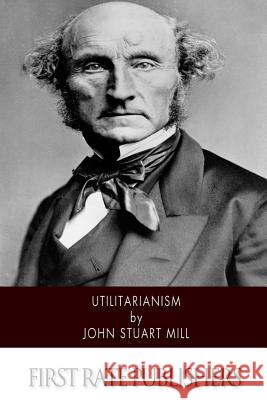Utilitarianism » książka
Utilitarianism
ISBN-13: 9781503114814 / Angielski / Miękka / 2014 / 40 str.
Utilitarianism
ISBN-13: 9781503114814 / Angielski / Miękka / 2014 / 40 str.
(netto: 23,08 VAT: 5%)
Najniższa cena z 30 dni: 23,91
ok. 16-18 dni roboczych.
Darmowa dostawa!
John Stuart Mill (20 May 1806 - 8 May 1873) was a British philosopher, economist and civil servant. An influential contributor to social theory, political theory, and political economy, his conception of liberty justified the freedom of the individual in opposition to unlimited state control. He was a proponent of utilitarianism, an ethical theory developed by Jeremy Bentham, although his conception of it was very different from Bentham's. Hoping to remedy the problems found in an inductive approach to science, such as confirmation bias, he clearly set forth the premises of falsification as the key component in the scientific method. Mill was also a Member of Parliament and an important figure in liberal political philosophy. Mill was also one of the earliest writers on the topic of minorities' rights. In 1850, Mill sent an anonymous letter (which came to be known under the title "The Negro Question"), in rebuttal to Thomas Carlyle's anonymous letter to Fraser's Magazine for Town and Country. Carlyle had defended slavery on grounds of genetic inferiority and claimed that the West Indies development was due to British ingenuity alone and dismissed any notion that there was a debtedness to imported slaves for building the economy there. Mill's rebuttal and references to the ongoing debate in the U.S. at the time regarding slavery were emphatic and eloquent. Mill's Utilitarianism is a philosophical defense of utilitarianism in ethics. The essay first appeared as a series of three articles published in Fraser's Magazine in 1861; the articles were collected and reprinted as a single book in 1863. It went through four editions during Mill's lifetime with minor additions and revisions. Although Mill includes discussions of utilitarian ethical principles in other works such as On Liberty and The Subjection of Women, Utilitarianism contains Mill's only major discussion of the fundamental grounds for utilitarian ethical theory.
Zawartość książki może nie spełniać oczekiwań – reklamacje nie obejmują treści, która mogła nie być redakcyjnie ani merytorycznie opracowana.











